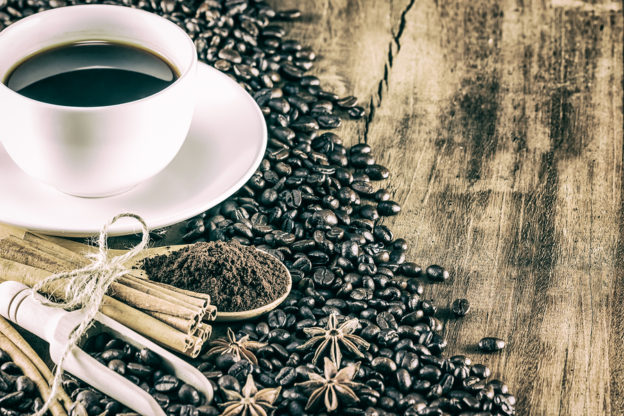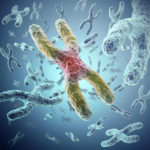By David Blyweiss, M.D., Advanced Natural Wellness
February 3, 2017
- Never top off your coffee, tea or fruit with this
- Dairy robs foods and beverages of their antioxidant content
- There’s a better kind of milk for your coffee and tea
A little milk in your coffee or tea… a cup of hot cocoa topped with whipped cream… strawberries and yogurt… blueberries and cream.
Some things just seem to go together. Or not.
While these food combinations are a treat for your taste buds, adding dairy products to these otherwise healthy foods destroys their antioxidant benefit.
That’s right. Dairy wipes out your body’s ability to absorb all of the healthy anthocyanins, catechins, ellagitannins and other powerhouse antioxidants in these foods.
The reason is pretty simple, and it’s something I’ve talked about frequently in the past:
Cow’s milk is not intended for humans. It’s intended for baby cows.
You see, every mammal’s milk is exclusive to its own species. Specifically, cow’s milk contains a large amount of a protein called casein. And the human body doesn’t have the enzyme needed to digest this protein.
Open your arteries, improve blood flow for a new health miracle...
Did you know your circulatory system has over 60,000 miles of arteries, veins and other blood vessels, if stretched end to end?
But as you age, your blood vessels undergo changes, which may cause them to stiffen, thicken and get clogged.
GOOD NEWS! Doctors have now identified a “Miracle Molecule” inside your arteries that helps OPEN your arteries and IMPROVE blood flow.
It’s what Dr. Valentin Fuster calls it, "One of the most important discoveries in the history of cardiovascular medicine."To you, that means...
- Healthy blood pressure
- Sharper mind and memory
- Skyrocketing energy and muscular strength
- Increased pleasure and passion in the bedroom
- Improved circulation to every cell and organ in your body
Go here to discover a new natural way to significantly boost the levels of this miracle molecule in YOUR body NOW!
Well, guess what happens when you combine dairy products made from a cow with your antioxidant-rich food?
The casein binds itself to the antioxidants, which prevents your body from absorbing them.
How Dairy Robs Foods and Beverages of their Antioxidant Content
Many of the health benefits of green tea are attributed to its high catechin content. These compounds increase the amount of nitric oxide in your blood vessels. This, in turn, relaxes your arteries and lowers blood pressure.
The catechins in green tea are also associated with weight loss and a reduction of body fat.
But guess what?
When you add dairy to your green tea, it blunts all of the antioxidant activity responsible for these health benefits. As a result the weight loss and heart healthy benefits of the tea will be lost.
And what about blueberries and cream?
Well, blueberries contain anthocyanins. These compounds help reduce plaque in your arteries and lower blood pressure. They can even help slash your risk of heart attack by as much as 33%.
Are You Suffering From...
- Love handles and a pot belly
- Romance that isn't what it used to
- Forgetfulness and inattention
- Low (or no) strength and endurance
- A sex drive that's shifted into neutral...or worse
If so...you may have Mature Male Burnout. Click here to discover more about this unique condition and what you can do about it.
They also help boost brain signaling. This means they can keep your brain younger and smarter as you age. In fact, people who eat the most blueberries are able to delay cognitive aging by up to 2.5 years.
But, once again, when you add milk or cream, it has a negative effect on the antioxidant activity. It decreases the availability of all the healthy anthocyanins, phenols and flavonoids responsible for these great health benefits.
Dairy also slashes the chlorogenic acid content of coffee, the anthocyanin content of pomegranate, the catechin activity of strawberries and polyphenols in chocolate and cocoa.
There’s a Better Kind of Milk for Your Coffee and Tea
If your taste buds demand milk in your coffee, cocoa or tea… if your favorite fruit just doesn’t taste right without a little cream or yogurt… there are other options.
My favorite dairy replacement is almond milk. You might think it would taste nutty, but it doesn’t. Additionally, it’s surprisingly rich and creamy. But it’s not your only alternative.
A lot of my patients prefer coconut milk. I think it’s because the texture is more similar to dairy milk than other dairy replacements. It’s also very versatile, since you can use it to make whipped cream. (Just put a can of coconut milk in the fridge overnight. When you open it, drain the water off the top and whip up the solid coconut cream with your beaters.)
Unfortunately you won’t be able to use either almond or coconut milk if you’re allergic to nuts.
If that’s the case, I suggest trying hemp milk. I have tried this type of milk, and its consistency and creaminess is similar to regular dairy milk. So it’s certainly worth a try.
I hesitate to recommend flax or soy milk, as they both contain phytoestrogens that may have a negative effect on your hormones. If you choose either of these as a replacement for dairy milk, make sure to buy organic and use in small amounts.
As far as rice milk is concerned, I’d pass it up altogether. It’s thin, lacks protein and may be loaded with arsenic.
Also, when choosing a milk alternative stay away from the flavored and sweetened versions of them. For the biggest health benefit select the original, unsweetened form.
SOURCES:
Velayutham P, et al. Green Tea Catechins and Cardiovascular Health: An Update. Curr Med Chem. 2008; 15(18): 1840–1850.
Nagao T, et al. Ingestion of a tea rich in catechins leads to a reduction in body fat and malondialdehyde-modified LDL in men. Am J Clin Nutr. 2005 Jan;81(1):122-9.
Lorenz M, et al. Addition of milk prevents vascular protective effects of tea. Eur Heart J. 2007 Jan;28(2):219-23.
Hursel R, et al. Consumption of milk-protein combined with green tea modulates diet-induced thermogenesis. Nutrients. 2011 Aug;3(8):725-33.
Cassidy A, et al. High Anthocyanin Intake Is Associated With a Reduced Risk of Myocardial Infarction in Young and Middle-Aged Women. Circulation. 2013; 127: 188-196.
Devore EE, et al. Dietary intakes of berries and flavonoids in relation to cognitive decline. Ann Neurol. 2012 Jul;72(1):135-43
Cebeci F, et al. The matrix effect of blueberry, oat meal and milk on polyphenols, antioxidant activity and potential bioavailability. Int J Food Sci Nutr. 2014 Feb;65(1):69-78.
Duarte GS, et al. Effect of simultaneous consumption of milk and coffee on chlorogenic acids’ bioavailability in humans. J Agric Food Chem. 2011 Jul 27;59(14):7925-31.
Trigueros L, et al. Antioxidant activity and protein-polyphenol interactions in a pomegranate (Punica granatum L.) yogurt. J Agric Food Chem. 2014 Jul 9;62(27):6417-25.
Oliveira A, et al. Incorporation of strawberries preparation in yoghurt: impact on phytochemicals and milk proteins. Food Chem. 2015 Mar 15;171:370-8.








One shouldn’t use any cows milk, does the same go for goat whey protein concentrate , does it block the antioxidants like the cows milk?
Whilst almond milk in tea is fine, almond milk in coffee tastes absolutely nothing like having it with full fat dairy milk. Need a better alternative than this.